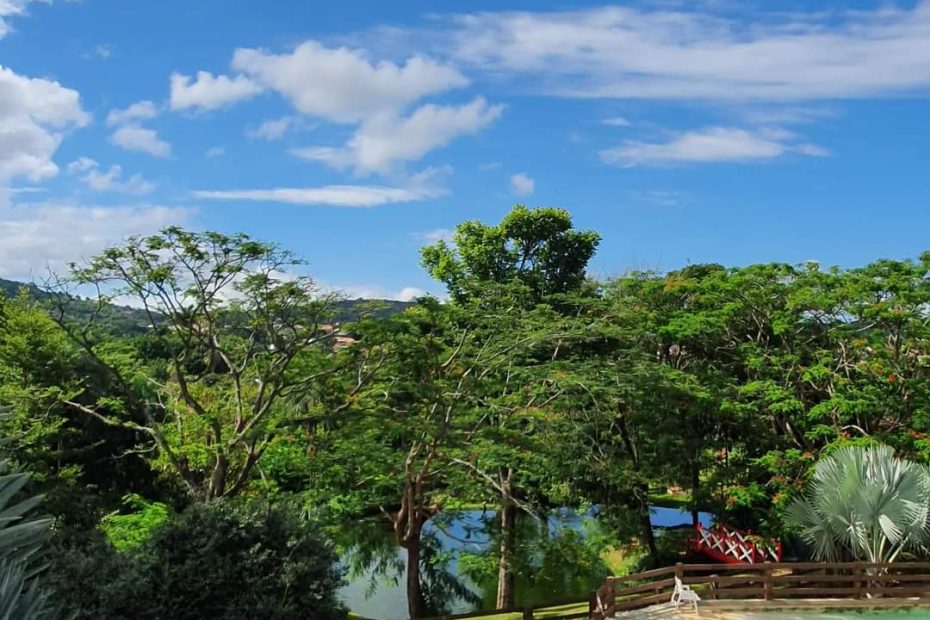World Bank Blog
|JUNE 08, 2023
Mozambican delegation visiting a classroom in the municipality of Sobral, Ceará, Brazil.
Recently, 12 delegates from Mozambique’s Ministry of Education visited Ceará state in Northern Brazil. They wanted to learn how Ceará, a relatively poor state, became a global reference for improving education quality in early grades.
With 9 million inhabitants, Ceará is one of Brazil’s lowest-income states. Not too long ago, it also had one of the weakest education outcomes in the country, but it implemented reforms and programs that allowed the state to improve the quality of its education much faster than the rest of Brazil, achieving levels of education quality comparable with those in developed countries.
With this stellar record, it is not a surprise that education experts from Mozambique, along with delegates from Kenya, Nigeria, and Sierra Leone, were curious about the reforms that made Ceará leapfrog in foundational learning – the literacy, numeracy, and skills needed for further learning
Mozambique’s education sector – Turning a crisis into an opportunity
In Mozambique, less than half of students complete primary education, and less than 5% of children are able to read a simple text at the end of grade 3.
But is not all bad news.
The country is well positioned to accelerate improvements in foundational learning and has a high potential to inspire others, given its government’s strong political commitment to education. After all, Mozambique has substantially expanded the coverage of primary education, and committed to improve children’s learning at the end of the first cycle of primary through its 2020-2029 Education Strategic Plan.
The Accelerator Program in Mozambique supports the implementation of activities to improve foundational learning at a faster pace and has strong synergies with a World Bank education project: Improving Learning and Empowering Girls in Mozambique Project (MozLearning). The project promotes improvements in learning in the first grades of primary education through evidence-based innovative interventions. These include structured materials for literacy, teacher training focused on pedagogical practice, effective use of learning assessments, results-based incentives programs for schools and districts, and expansion and improvement of early childhood development.
Could Mozambique be the next Ceará?
After eagerly mining Ceará for its magic formula, the delegation returned to Mozambique with three key take aways: (i) the need for political commitment to achieve learning targets focused on foundational learning; (ii) the importance of establishing a literacy package for schools, with clear lesson plans and teacher training focused on classroom practice, and (iii) effective use of learning assessments to guide action to achieve better education outcomes.
They also noticed other critical factors that contributed to Ceará’s performance – some already included in Mozambique´s plan and supported by development partners, including the MozLearning Project. These include:
- Use of lesson plans and other structured learning materials focused on classroom pedagogical practice to teach reading;
- Upgrade three-year pre-service teacher training programs, including one year of pedagogical practice;
- Regular support to teachers through assistance with teaching practice and advice from the pedagogical director on teaching strategies and learning in the classroom;
- Effective use of learning assessments;
- Incentives programs for schools and districts to improve education outcomes in early grades.
These activities have started implementation across the country, with the literacy package initiated with a pilot financed by Finland.
Mozambique has all the ingredients to be the next Ceará.
The case of the Brazilian state shows that improvements in foundational learning can be achieved even in challenging contexts. It also shows that intermediate results, like increasing the number of literate students by the end of grade 2, can be achieved in one or two years, if there is focus on early grades. Promoting and measuring these quick wins can help to galvanize a national strategy to accelerate foundational learning. Such a strategy has the potential to accelerate the improvements in learning outcomes that all students and parents expect from the education system and that are so critical to increasing human capital in Mozambique.
The visit to Ceará was part of a south-south knowledge exchange mission organized by the World Bank Mozambique Education Team, along with the Global Knowledge and Innovation for Education, in the context of the Accelerator Program, which supports selected countries to implement activities to improve foundational learning at a faster pace. This international initiative was launched in late 2020 by the World Bank and UNICEF, in partnership with the Bill & Melinda Gates Foundation, U.K.’s Foreign, Commonwealth & Development Office (FCDO), UNESCO’s Institute of Statistics, and USAID.
